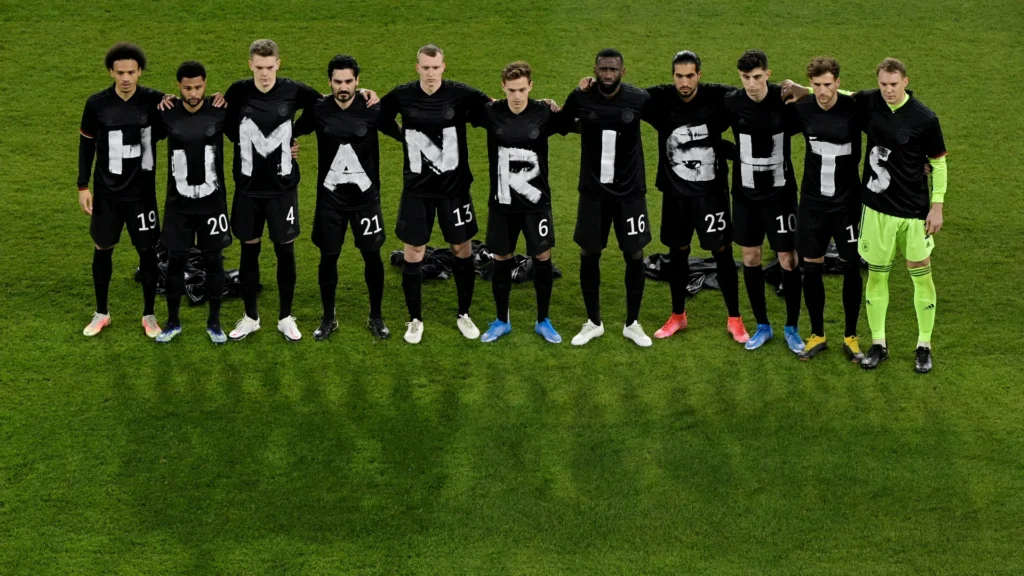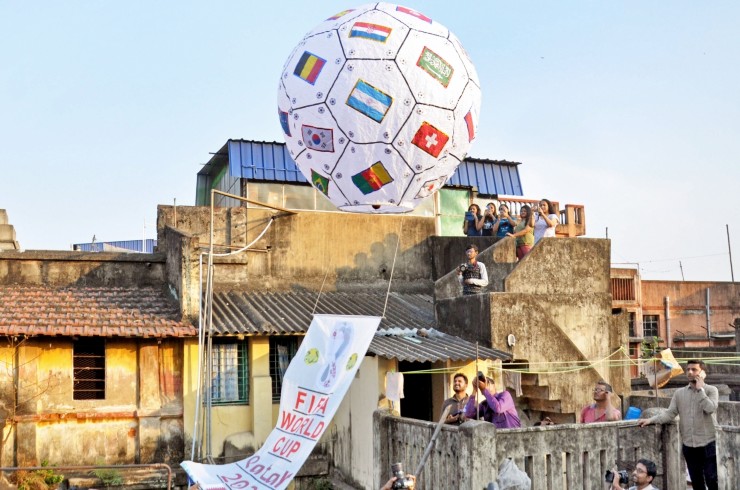Introduction
The 2022 FIFA World Cup in Qatar was a monumental event, drawing global attention not only for its football spectacles but also for the intense scrutiny regarding human rights issues. The tournament highlighted significant concerns about labor practices, women’s rights, and LGBTQ+ freedoms in the host nation. While Qatar showcased its modern infrastructure, cultural heritage, and growing global influence, discussions around human rights persisted before, during, and after the event. This article delves into these issues, examines Qatar’s efforts toward reform, and assesses the broader implications of hosting such a prestigious event.
Labor Rights and Migrant Workers
Qatar’s rapid development in preparation for the World Cup necessitated an immense workforce, primarily composed of migrant laborers. The country invested heavily in infrastructure, including stadiums, transportation networks, and accommodations. However, numerous reports from human rights organizations and investigative journalists highlighted widespread exploitation of these workers. Many faced long working hours, hazardous conditions, withheld wages, and excessive recruitment fees. The kafala system, which tied workers to specific employers and restricted their ability to change jobs or leave the country without permission, was particularly criticized.

In response to international criticism, Qatar introduced several labor reforms. These included establishing a minimum wage, improving workers’ accommodations, and easing restrictions that previously bound workers under the kafala system. The government also launched initiatives to address wage theft and ensure better workplace safety. While these measures marked progress, challenges persisted in their implementation and enforcement. Many workers continued to report issues such as contract violations, lack of legal protections, and intimidation from employers. Human rights groups acknowledged Qatar’s efforts but emphasized the need for further reforms to ensure fair and dignified working conditions.
Women’s Rights
Despite being one of the world’s wealthiest nations, Qatar maintains laws and practices that discriminate against women. Under the male guardianship system, women must obtain permission from a male guardian to marry, pursue higher education abroad on government scholarships, work in many government jobs, travel internationally until certain ages, and access specific reproductive health services. These restrictions limit women’s autonomy and opportunities, leading to calls for reform from activists and international organizations.
Additionally, laws criminalizing extramarital sex disproportionately affect women, particularly in cases where reporting sexual assault can lead to their prosecution. Women who come forward about rape or assault risk being charged with “zina” (unlawful sexual relations) if they cannot provide sufficient evidence, which creates a culture of fear and silence around gender-based violence. While Qatar has taken some steps to improve gender equality in education and professional fields, legal and societal barriers continue to restrict women’s rights.
LGBTQ+ Rights
Qatar’s legal framework criminalizes same-sex relations, with penalties including imprisonment. In the lead-up to the World Cup, reports surfaced of arbitrary arrests and ill-treatment of LGBTQ+ individuals by security forces. These actions raised significant concerns about the safety and acceptance of LGBTQ+ fans and participants during the tournament.
Despite assurances from FIFA and Qatari authorities regarding the safety of all visitors, the prevailing legal and social environment remained a source of apprehension. Some LGBTQ+ individuals faced harassment, surveillance, and restrictions on their freedom of expression. Rainbow flags, a symbol of LGBTQ+ pride, were sometimes confiscated at stadiums and public gatherings. Activists and human rights organizations continued to push for greater protections and visibility for LGBTQ+ people in Qatar, though meaningful legal changes remained absent.
Freedom of Expression and Press Freedom
Qatar imposes strict limitations on freedom of expression, with laws that criminalize criticism of the emir, defamation of religion, and the dissemination of “false news.” Journalists operating in Qatar have faced detentions and censorship, raising concerns about the ability to report freely during the World Cup. These restrictions posed challenges for both local and international media covering the event.
While Qatar sought to project an image of openness and progressiveness during the tournament, underlying restrictions on speech and press freedom remained. International media faced difficulties covering sensitive topics, and some foreign journalists were detained or had their equipment confiscated. Qatari citizens, meanwhile, risked significant penalties for publicly discussing political or human rights issues. These constraints highlighted the broader tensions between Qatar’s global ambitions and its restrictive domestic policies.
FIFA’s Role and Responsibilities
FIFA’s decision to award the World Cup to Qatar without prior human rights due diligence drew widespread criticism. Despite adopting a Human Rights Policy in 2017, FIFA faced accusations of failing to uphold its commitments, particularly regarding the protection of migrant workers and other vulnerable groups. Calls for FIFA to provide remedies, including financial compensation to affected workers and their families, were met with limited action.
Notably, FIFA launched a $50 million legacy fund for social programs but did not allocate funds specifically for worker compensation, leading to further condemnation from human rights organizations. Critics argued that FIFA, as the governing body of global football, had a responsibility to ensure that its tournaments do not contribute to human rights abuses. The controversy surrounding Qatar’s World Cup reignited discussions on FIFA’s governance and the ethical considerations of selecting host countries.
International Relations and Economic Considerations
Hosting the World Cup significantly impacted Qatar’s international relations and economic strategies. The event provided an opportunity for Qatar to bolster its global image and strengthen economic ties. The country sought to position itself as a leading player in international sports, tourism, and business. As a result, Qatar engaged in diplomatic efforts to enhance trade and investment opportunities with key global partners.
Qatar also used the World Cup as a platform to highlight its growing influence in geopolitics. The tournament brought world leaders, investors, and international organizations to Doha, fostering diplomatic engagement and economic partnerships. Despite the human rights controversies, Qatar successfully leveraged the event to promote its national brand and strategic interests on the global stage.
Conclusion
The 2022 FIFA World Cup in Qatar brought global attention not only to the sport but also to pressing human rights issues within the country. While some reforms were initiated in response to international scrutiny, significant challenges remain. The tournament underscored the need for sustained efforts to ensure that mega sporting events promote not only athletic excellence but also respect for human rights and dignity.
As the world reflects on Qatar’s World Cup legacy, the broader conversation about human rights in sports continues. Future tournaments will likely face greater scrutiny regarding host nation policies, FIFA’s responsibilities, and the ethical considerations of global sporting events. The Qatar World Cup served as a reminder that while football unites nations, it also provides a platform for meaningful discussions about justice, equality, and human dignity.
Qatar’s Strategic Investments in Asia: Balancing Economics and Geopolitics



